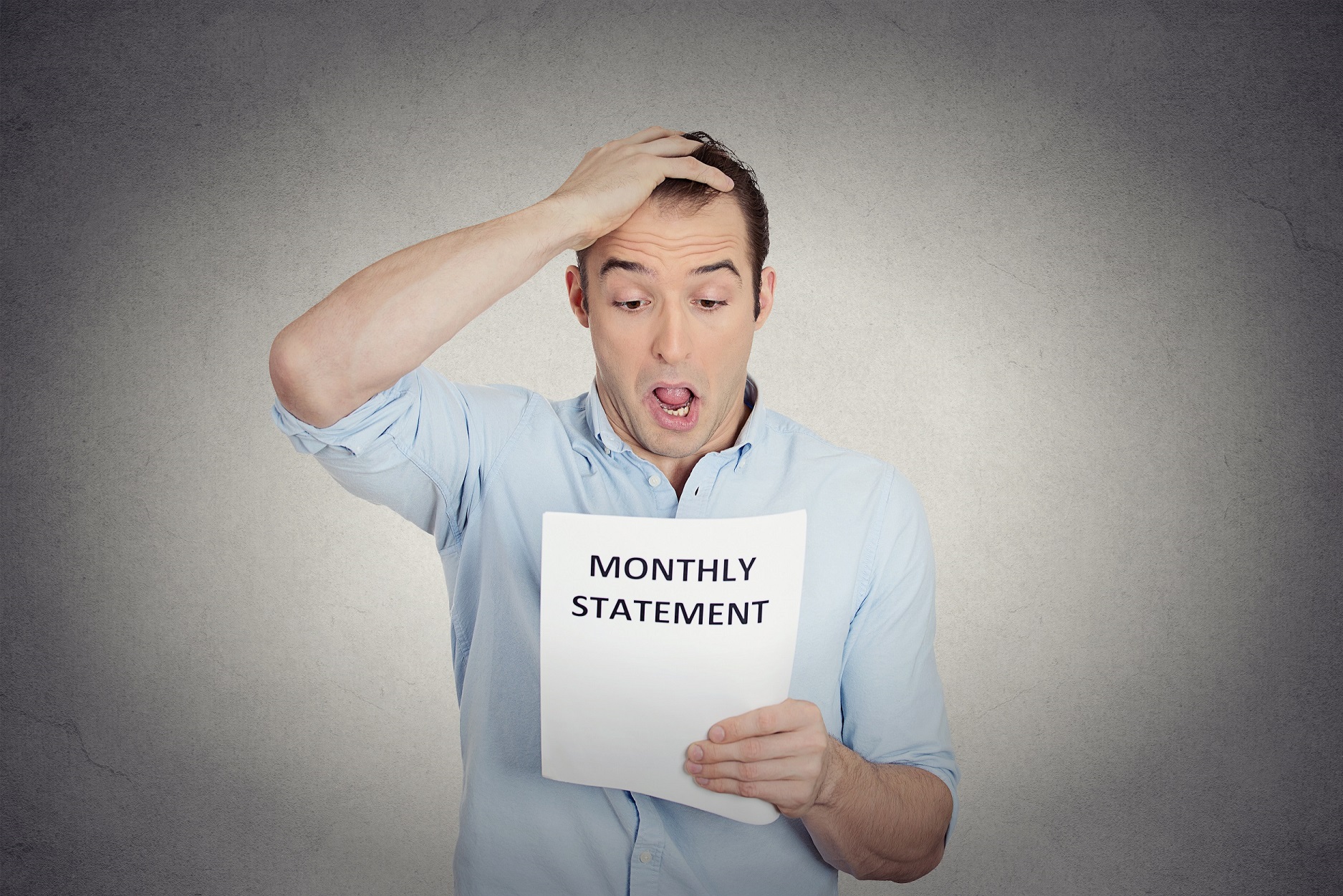Spending Habits You Need To Break To Get Out Of Debt

Everyone’s guilty of frivolous spending, and when done every once in a while, it doesn’t have to be cause for concern. However, when frivolous spending leads to oppressive debt and financial strain, it may be time to put down the credit cards, assess your spending habits and make some serious changes. If you’re stressed about money and aren’t sure how you got into so much debt, it may be time to break a few bad spending habits, beginning with the six listed below.
1. Spending More Than You Make
It’s impossible, you may think, to spend money you don’t have. Yet, when you add up all those receipts from last month and see that you spent $3,000 when you only earn $2,500 a month, you’ll quickly realize that it’s really not that difficult to spend beyond your means. Dipping into savings, overusing credit cards and borrowing from friends and family are a few ways people easily send out more cash than they make.
Overspending for just a few short weeks or months may not make much of an impact on your financial health, but if you continue to live beyond your means, your bad spending habits will catch up with you. Reduce your output to less than your monthly income and use the money you save to pay down your debt.
2. Spending Without a Plan
Budgets aren’t just for the frugal and money-tight. A little organization can help you account for every last dollar and ensure your paycheck doesn’t disappear before you have a chance to pay off your bills, make your monthly mortgage payment and restock your fridge. When you have a plan in place, you can ensure you spend less than you make, put enough aside for a rainy day and avoid using credit to pay for the necessities.
The easiest way to budget for necessities is to give every dollar a purpose. Pay yourself first, as you need enough in your savings to cover an emergency without having to rely on loans or credit. Then set aside X amounts for rent or mortgage payments, utilities, groceries, gas and other necessary expenses.
3. Paying for Convenience
Picking up a $5 sandwich for lunch one day because you didn’t have time to pack that morning is understandable. However, when you’re buying one or more meals a day, or when you pay for coffee every morning instead of making it at home, you’re letting your money slip between your fingers.
If time is an issue during the workweek, take up meal prepping. Cook all your meals on Sunday night and reheat them throughout the week. Have everyone pack their own lunches the night before the next school or workday, and prepare your coffee grounds at the same time. Fill a thermos to take with you to work, complete with containers for your cream and sugar. You’ll be surprised by how much you save just by cutting out "convenient” eats.
4. Paying Only the Monthly Minimum
Lenders love it when borrowers pay only the monthly minimum payments each month. Most monthly minimums are calculated to be about 4% to 6% of a borrower’s total balance. When you pay the minimum, you risk not only staying in debt longer but also, you could accrue more interest. Then there are the monthly maintenance fees to take into consideration.
For example, say your monthly minimum is $20 and your average interest charge is $3.95. You have a monthly maintenance fee of $12. When you pay the minimum, you’re really only paying off $4.05 per month. That’s nearly $16 you’re losing every month to credit card fees.
5. Buying on Impulse
It’s so easy to succumb to impulse purchases, which is why they place candy bars at checkouts, cute Tupperware containers in snack food aisles and sample stations in ice-cream departments. It’s also easy to justify an impulse purchase, such as creating a false need or rationalizing that it’s "only” so much. That said, impulse buying is one of the worst spending habits a person can develop.
Impulse buying itself is a bad spending habit, but what’s worse, it perpetuates other bad spending habits. Individuals who regularly buy on impulse also tend to rationalize poor purchase decisions, buy unnecessary items on credit and lose track of their spending budget.
6. Failing To Track Spending
Though you don’t need to carry around a paper ledger, you should have a system in place that allows you to adequately track your spending. In the age of plastic, it’s so easy to swipe without thinking twice and to spend more than you realize. Before you know it, half your paycheck is gone and you’re only three days into the new pay period. Make sure you always know how much is in your account by checking it every couple of days or so.
It’s hard to get ahead when you’re so far behind. If your bad spending habits have led you into insurmountable debt, take out a personal loan to consolidate all your debt into one easy-to-manage low monthly payment. Learn more about our personal loans and how they can help you.
